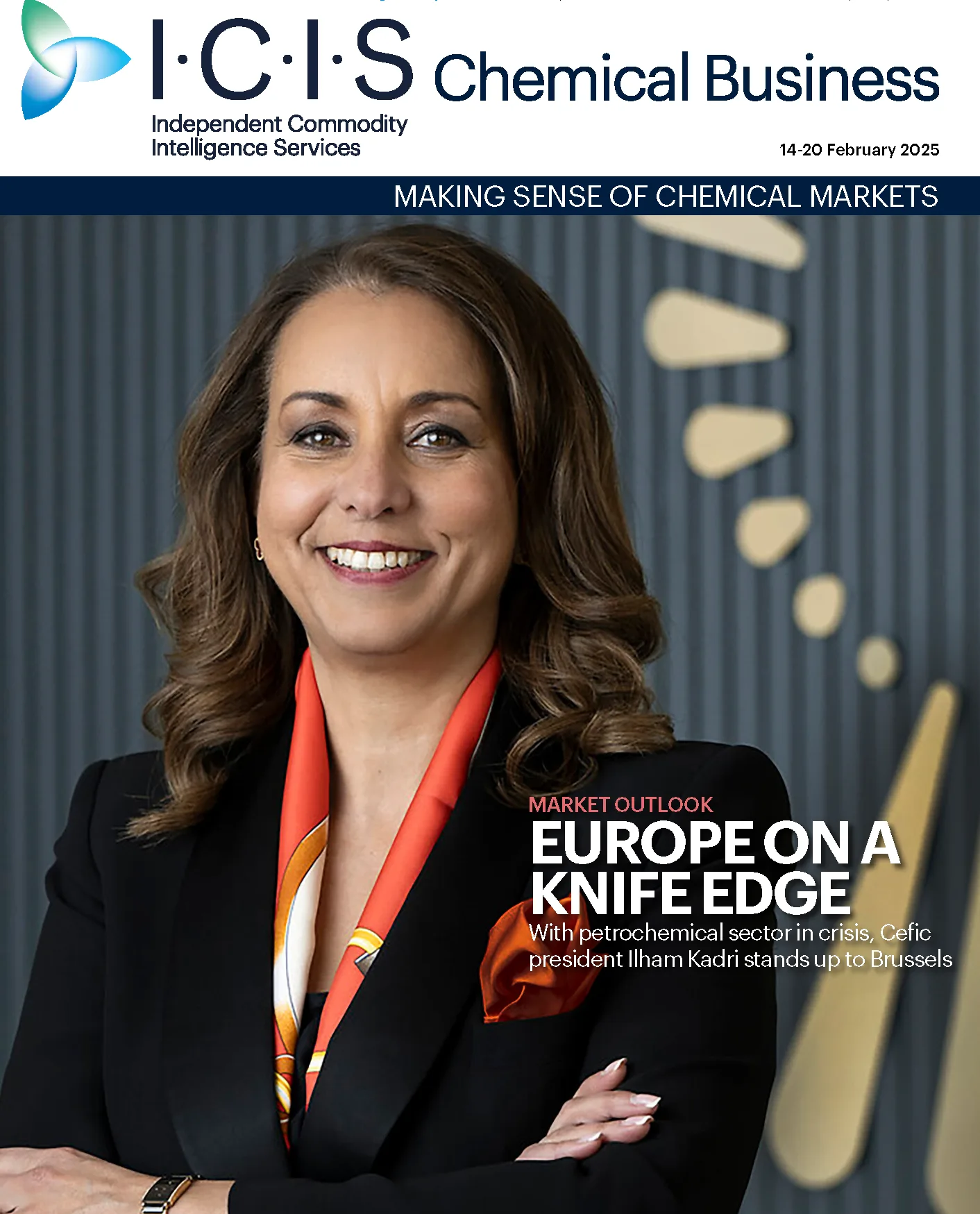In a recent podcast interview with ICIS, Dr. Ilham Kadri, CEO of Syensqo and President of Cefic and ICCA, issued a stark warning: Europe’s chemical industry is at a tipping point. Rising energy costs, regulatory burdens, and intensifying global competition are threatening the sector’s survival. Without urgent policy action, Europe risks further industrial decline.
“There is no strong economy without strong industry. And there is no strong industry without a strong chemical industry,” Kadri emphasises. Representing 5-7% of EU manufacturing turnover, the chemical sector employs millions and is crucial to Europe’s ambitions for climate neutrality and circularity.
Dr. Ilham Kadri, President of ICCA and Cefic, and CEO of Syensqo
Kadri describes a “perfect storm” for the industry, with:
- Energy costs in Europe 4-5 times higher than in competing regions.
- Over 11 million tonnes of chemical production capacity closures announced for 2023-2024.
- Europe’s market share in chemicals falling by 11% in a decade, while China gained 9%.
To turn the tide, in February 2024, 73 chemical industry CEOs met in Antwerp to present the Antwerp Declaration to Commission President Ursula von der Leyen and former Belgian Prime Minister Alexander De Croo to demand urgent action to restore the business case in Europe, to safeguard high quality jobs, while going climate neutral and circular. The Antwerp Declaration sets out ten key priorities, including calls to integrate EU industrial policy in the broader strategic agenda, reduce administrative burden, ensure abundant supplies of affordable energy, stimulate demand for low-carbon and circular products, among others.
Kadri warns that despite the EU’s ambition for a single market, regulatory fragmentation across 27 member states creates obstacles for businesses. “We need to lower the barriers to the single market,” she urges, calling for uniform EU-wide rules that prevent national discrepancies.
“You need to create that single market. We need to finance the competitiveness (…) promote skills and quality jobs and better coordination of policies, not only at EU level, but also at member state level”.
Dr. Ilham Kadri, President of ICCA and Cefic, and CEO of Syensqo
Europe needs to move from the ambition ‘to be’ to the determination ‘to do’Kadri stresses, urging Europe to shift from rhetoric to action. She acknowledges recent EU initiatives, such as the Competitiveness Compass and the upcoming Clean Industrial Deal but insists that execution is critical. The Chemical Industry Package, expected later this year, must deliver tangible regulatory and economic improvements.
Europe’s slow response and uncertain regulatory landscape are already pushing investment abroad. Kadri cites Syensqo’s expansion in the US, now its largest market, reflecting a broader trend where companies are moving due to:
- Lower energy costs.
- More predictable regulation.
- Stronger investment incentives.
“At the end of the day, we go where our customers are (…),” she says, warning that Europe must improve its business climate to remain competitive.
Dr. Ilham Kadri, President of ICCA and Cefic, and CEO of Syensqo
Kadri urges the EU to deliver on policy promises with real actions.
“I’m optimistic, but optimism is not a strategy,” she warns. Without immediate reforms, Europe risks losing its chemical industry—and economic strength—to global competitors.
Dr. Ilham Kadri, President of ICCA and Cefic, and CEO of Syensqo










